🚀 Ever fantasized about taking the freelance writing world by storm? Yeah, it’s a bit like training for a marathon while balancing a coffee cup on your head, but hey, no one said it was going to be a walk in the park! So, if you’re ready to level up your writing game, buckle up, and let’s dive into the exciting world of freelance writing.
To rock the freelance writing scene, you need two things: dedication and a hefty scoop of industry know-how. Picture it as being a detective in a world of words – you’ve got to know the lay of the land, and how to make your way around. Sharpen your writing chops, learn the art of selling yourself without sounding like a door-to-door salesman, and you’re halfway there. And you know what else will give you an edge? Staying ahead of the curve with the latest trends in content marketing.
You may be thinking, “OK, got it, but what about discipline?” Let’s be real, discipline is the secret sauce to crushing it as a freelance writer. 🏆 Think of it as your own personal writing coach, always pushing you to meet deadlines and deliver top-notch work. It’s not enough to have ideas that could put J.K. Rowling to shame; if they don’t leap off the page and into action, they’re just daydreams.
So, set goals you can actually reach – maybe the daily word count is a bit much to start with. And don’t forget to celebrate your wins! Rewarding yourself for meeting targets is like giving yourself a high five, and who doesn’t love that?
Now, let’s get to work, future successful freelance writer! You’ve got this. And if you need a little inspiration, remember that Louis L’Amour once said, “Start writing, no matter what. The water does not flow until the faucet is turned on.” So, let your words flow and start building your writing empire today!
Table of Contents
Understanding Freelance Writing
If you’re drawn to the allure of turning thoughts into sentences and earning some bucks while at it, then you’re in the right place. Just imagine, you’re the boss, the employee, and the HR department all rolled into one! No nagging clients or bosses to dictate your day. 😎 But hey, with great power comes great responsibility, right?
Here’s the real deal – it’s up to you to discover and lock in those juicy writing gigs. That means the sweat you put into the game directly translates into the thickness of your wallet. 🏋️♂️ Money doesn’t grow on trees, but it does sprout from the seeds of hard work!
But wait, there’s more! The life of a freelance writer isn’t just about hunting for work. You’ve got to deliver the goods too. We’re talking top-notch content produced on a tighter deadline than a soufflé in a five-star kitchen. Good grammar and punctuation are your secret weapons and creativity, well, that’s the magic dust that makes your work sparkle. 🧚♀️
And it’s not just about what you already know. Remember the wise words “The day you stop learning is the day you stop growing”. So, keep up with the Joneses, or in this case, the Hemingways and the Rowlings of the freelance world. That means getting cozy with industry trends and feasting on publications that tickle your writing fancy.
And last but definitely not least, get your networking game on! A recent LinkedIn survey showed that 85% of jobs are filled via networking. Building solid relationships with editors and potential clients can be your golden ticket to more writing opportunities.
So, if you’re ready to embark on this journey, put your writer’s cap on, and let’s start turning those blank pages into your success story! 🖋️ 📖
Freelance Writer Salary Information


Identifying Your Writing Niche
When you’re aiming to ace the freelance writing game, pinpointing your unique niche is the winning move. You’ll want to discover the topics that make your pen dance across the page and the style and tone that feels as comfy as your favorite sweater. 🕵️♂️
1. Map Your Interests: Begin by drafting a list of subjects that light your fire and areas where you’re a bona fide whiz. 💡
2. Market Research: Next, it’s time for some detective work! Sift through job postings or freelance writer-friendly websites to identify what skills and topics are hot commodities. It’ll help you chisel down your list and zero in on those services that have clients waving their checkbooks. 📊
Insider tip: Don’t forget to leverage SEO tools like SEMrush or Moz to discover high-demand topics and keywords.
3. Rub Shoulders with the Best: Finally, it’s about who you know as much as what you know. Start hobnobbing with fellow writers, editors, and publishers who can spill the beans on industry secrets or even point potential clients your way.
Revamp Your Freelance Writing Career: Crafting the Perfect Resume


Staking your claim in the competitive freelance writing market begins with a polished resume. As your professional calling card, a well-structured, keyword-optimized resume can ignite the interest of potential employers, setting you apart in the industry.
Outline Your Accomplishments
The journey to a powerful resume starts with crafting a comprehensive outline. Assemble your writing accomplishments, including completed projects, attended courses, and any accolades that highlight your prowess. Don’t shy away from showcasing your educational background—it adds context to your skill set.
Testimonials & References
References from previous employers or clients can serve as a stamp of approval for your work ethic and expertise. Including these in your resume can significantly enhance your credibility.
Formatting for Success
The aesthetics of your resume play a vital role in capturing attention. It must be clean, easy to navigate, and—most importantly—concise. Use clear headings for each section, ensuring potential employers can find what they need at a glance.
Harness the Power of Keywords
To stand out in the digital landscape, infuse your resume with industry-specific keywords. This SEO strategy not only makes your resume more discoverable in online databases but also signals your deep industry knowledge.
Proofreading: The Final Polish
Last but certainly not least, proofreading is the final, crucial step before your resume hits the inbox of a potential employer. Any overlooked errors or typos can blemish your professional image, so meticulous review is essential.
Quick Tip: Use tools like Grammarly or Hemingway App for an extra layer of proofreading.
In Summary
By meticulously crafting your resume, you’re not only showcasing your skills and experience—you’re telling a compelling story of your professional journey. With the seal of industry-specific keywords and the endorsement of past clients, you’ll be well on your way to freelance writing success.
Key Takeaways
- Outline: Highlight your writing projects, courses, and accolades.
- References: Include testimonials from previous employers or clients.
- Formatting: Make your resume clean, concise, and easy to navigate.
- Keywords: Utilize industry-specific keywords for better online visibility.
- Proofreading: Carefully review your resume to eliminate any errors.
With these strategies, you’ll soon be equipped with a resume that speaks volumes about your freelance writing prowess.
Key Takeaways:
- Identify your preferred topics and writing style.
- Research market demand to refine your focus.
- Network with industry insiders for tips and leads.
With these steps, you’ll be well on your way to carving out your niche in the bustling freelance writing market! 🚀
Quick Checklist:
✅ List down your interests and expertise
✅ Perform market research
✅ Engage in networking
The Art of Building a Powerful Writer’s Portfolio
Crafting a compelling writer’s portfolio is pivotal to carving your niche as a successful freelance writer. It serves as a testament to the caliber and diversity of your craft, painting an enticing picture for prospective clients. Embarking on this journey starts with setting up a professional website or blog, a virtual canvas where you can display your best pieces.
Highlight notable achievements in your writing career on this platform, be it accolades or recognition you’ve earned. So if your work has yet to grace the pages of a magazine or website, take the initiative to submit your articles.
Key Takeaway: Include client testimonials within your portfolio. These serve as persuasive endorsements of your skills and credibility as a writer, akin to the applause from an audience at the end of a performance.
It’s imperative to keep your portfolio fresh and up-to-date. As you hone your writing prowess and broaden the range of projects you undertake, incorporate this evolution into your portfolio. This will give potential clients a glimpse into your growth journey as a writer.
Pro tip: Establish social media accounts dedicated to your freelance writing endeavors. This is your stage to the world, raising your profile and opening doors to countless opportunities for paid work. Think of it as your literary agent, promoting you round the clock.
Maintaining a dynamic portfolio is akin to tending a garden; regular care and updates are essential. This diligent upkeep not only reflects your capabilities as a freelance writer but also lures in more potential clients seeking gifted writers like yourself. As bestselling author Stephen King puts it, “Talent is cheaper than table salt. What separates the talented individual from the successful one is a lot of hard work.”
Insider tip: Keeping your portfolio alive and vibrant is the key to demonstrating the breadth of your capabilities as a freelance writer. It’s your magnet to attract more potential customers in search of skilled wordsmiths.
Your writer’s portfolio is your creative showcase, your professional statement, and a powerful tool to attract new opportunities. Make it speak volumes about your talent, dedication, and growth.
Determining Your Freelance Writing Rates: A Comprehensive Guide


When embarking on the freelancing journey, showcasing your skills via an impressive portfolio is pivotal, yet equally crucial is devising a strategic pricing structure for your services. Industry leaders like Tim Ferriss and Seth Godin have often emphasized the importance of setting competitive and fair rates.
- Scope of the Project: The first step in setting your rates is gauging the size and complexity of the project. Whether you’re curating engaging web content or delving into the intricate process of researching and authoring a complete book, your rates should mirror the level of effort and time input. Remember, the more intricate the task, the higher your rates should be.
- Understanding Your Client: Secondly, it’s vital to know who you are working with. Small businesses or individuals contracting for a one-off project may have a limited budget compared to larger corporations with recurring content creation and marketing needs. Neil Patel, a renowned marketer, suggests having an open dialogue to set clear expectations, ensuring mutual understanding and satisfaction.
- Fair and Reasonable Pricing: Finally, the golden rule of setting rates is ensuring they’re fair and reasonable for both parties. Your ultimate goal as a freelancer is sustainability, yet overpricing can lead to missed opportunities. Market trends and industry standards can serve as your compass in setting competitive rates, simultaneously ensuring profitability.
Key Takeaway:
Setting your freelancing rates is a balancing act. Understanding the project scope, knowing your client, and ensuring fair pricing are all critical elements. Remember, the rates you set today will pave the way for your freelancing journey tomorrow.
Bonus Tip:
Invest time in researching market trends and industry standards. Sites like Glassdoor can provide valuable insights into the ongoing rates for different services in the freelancing industry.
Remember: Your rates are a reflection of your expertise and the value you bring to a project. Be fair, be reasonable, but most importantly, be proud of your work and it’s worth.
Secrets to Landing Clients and Jobs
Are you a freelance writer looking to grow your network, land more jobs, and ultimately, succeed in your career? The keys are just at your fingertips. As a freelance writer, your success depends not only on your writing prowess but also on your ability to effectively market your services and build a robust portfolio.
1. Mastering the Art of Networking and Relationship Building
Building strong connections with editors, publishers, and other key industry professionals is paramount. These relationships can open doors to new opportunities and solidify your position in the freelance writing landscape.
Online platforms present a bounty of networking opportunities. Participating in writing-related groups or forums can help you connect with potential clients while keeping active on these platforms enhances your visibility.
Pro Tip: Don’t underestimate the power of social media. Platforms like LinkedIn and Twitter are not only great for staying updated on the latest industry trends but also for discovering job openings and connecting with fellow writers.
2. Showcasing Your Talents: The Power of an Online Portfolio
The digital age has made it crucial for every freelance writer to have an online presence. Establishing a website or blog that highlights your skills and unique writing style is a must.
Not just a digital resume, your website or blog should give potential clients an insight into your writing prowess and what it’s like to collaborate with you.
3. Profiling on Freelance Platforms: Your Digital Billboard
Creating profiles on reputable freelancing websites puts you directly in the line of sight of potential employers. These platforms provide an avenue for clients to learn more about your services, your rates, and your availability. Ensuring this information is accurate and current is key to capturing the attention of prospective clients.
Key Takeaways:
- Build and maintain relationships with key industry professionals
- Participate actively in online groups and forums
- Leverage the power of social media for networking
- Create an online portfolio that showcases your unique skills and style
- Maintain an up-to-date profile on freelancing websites
With these strategies, you’ll be well on your way to becoming a successful freelance writer. Remember, finding clients and jobs is an ongoing process, but with perseverance and the right approach, success is within your grasp.
Cultivating Excellent Work Habits


To truly excel as a freelance writer, cultivating good work habits is non-negotiable. Developing these habits not only ensures you deliver high-quality content consistently, but also aids in managing your time effectively, avoiding burnout, and maintaining the passion that drove you to this career path.
1. Goal Setting: Breaking Down the Big Picture
The first step to creating an efficient work routine is setting achievable, realistic, and timely goals. For example, if you’re tasked with a 500-word article, break it down into manageable segments.
“The secret of getting ahead is getting started. The secret of getting started is breaking your complex overwhelming tasks into small manageable tasks.” – Mark Twain, Renowned Writer, and Humorist.
Dedicating day one to crafting a compelling introduction and day two to writing a conclusive ending, for instance, can make the project less daunting and keep you on track.
2. Regular Work Schedule: Your Route to Consistency
Establishing a consistent work schedule is crucial. This doesn’t just create a productive routine for you but also sets expectations for your clients regarding project delivery times.
Insider Tip: Try to maintain the same work hours daily. While life’s unpredictability can sometimes disrupt your routine, endeavor to adhere to your designated work hours as closely as possible.
3. Remember Your Why: Keeping the Passion Alive
Above all, don’t lose sight of your love for writing – the primary reason you embarked on this freelance journey. Remember to take breaks, reward yourself upon achieving daily goals, and keep the spark alive.
“Writing has so much to give, so much to teach, so many surprises. That thing you had to force yourself to do — the actual act of writing — turns out to be the best part.” – Anne Lamott, Bestselling Author, and Writing Coach.
Key Takeaways:
- Break down tasks into manageable goals
- Maintain a consistent work schedule
- Regularly remind yourself of your passion for writing
- Take necessary breaks to avoid burnout
With these effective habits, you’ll not only ensure the consistent delivery of top-notch content to your clients but also foster a sustainable and enjoyable freelance writing career.
Mastering the Art of Networking: The Golden Key to Freelance Writing Success
Embarking on a successful journey as a freelance writer hinges on one crucial element: forging industry connections. And this rings especially true when you’re trying to carve out a space in the competitive freelance writing industry.
- Joining Industry Organizations and Events: The stage is set at industry conferences, workshops, and seminars. These platforms teem with professionals – writers, editors, publishers – who not only brings a wealth of opportunities but also provide invaluable insights into the industry’s ever-evolving landscape.
Insider Tip: Seek out organizations such as the ‘American Society of Journalists” and Authors or events like the ‘Writers Digest Conference‘ for unparalleled networking opportunities.
- Harnessing Social Media Power: Platforms like Twitter and LinkedIn aren’t just for casual interactions. They are potent tools for making strategic industry connections. Ensure your profile showcases your professional persona and stays current.
Checklist for a Professional Social Media Profile:
- Updated portfolio of work
- Clear, professional profile picture
- Concise yet comprehensive bio
- Regular interaction and engagement with industry-relevant content
- The Power of Word-of-Mouth: Underestimate not the power of a satisfied client. By simply asking your current clients for referrals, you pave the way for a robust network of potential work opportunities.
“Your network is your net worth.” – Porter Gale, former VP of Marketing at Virgin America and a renowned networking expert.
Key Takeaways
- Networking is the cornerstone of freelance writing success.
- Regular participation in industry events is a significant networking strategy.
- Harness social media to build and maintain professional relationships.
- Never underestimate the power of word-of-mouth referrals.
Remember, being a successful freelance writer is not just about honing your writing skills; it’s about making the right connections in the field.


Keeping Up With Industry Changes
With the ever-evolving landscape of the freelance writing industry, it’s crucial to stay attuned to the latest trends, technologies, and opportunities. The ebb and flow of this dynamic field could influence your success as a freelance writer, and staying informed is a non-negotiable must.
- Embrace the Power of Knowledge: Make it a habit to immerse yourself in publications, blogs, and other resources pertinent to the freelance writing industry. Tracking major industry events or changes could prove advantageous, positioning you as a successful writer in this competitive realm. Remember, knowledge is power, and in the freelance world, it’s the power to succeed.
- Connect, Network, Grow: A proactive approach to growing your professional network can significantly improve your prospects. Attendance at niche-specific conferences, workshops, and seminars not only offers a rich reservoir of learning but also opens up avenues for invaluable advice and potential leads. Similarly, your active participation in the industry could be the stepping stone to great opportunities.
Checklist for Success
- Stay informed about current technologies, topics, and strategies.
- Regularly read industry-related publications and blogs.
- Attend conferences and workshops centered around your niche.
- Foster relationships with industry professionals.
- Stay Ahead, Stay Successful: By keeping abreast of the latest industry developments, you’ll ensure your competitiveness and increase your access to new opportunities. These deliberate steps not only build your credibility as a professional writer but also pave the way for future projects.
In the dynamic world of freelance writing, remember that keeping up with industry changes isn’t just about survival – it’s about thriving. Your success as a freelance writer is directly proportional to your understanding and adaptation to industry changes. So, stay informed, stay connected, and stay successful!
Mastering the Art of Meeting Deadlines


Meeting deadlines is an art that every freelance writer must master to thrive in the industry. Falling short on deadlines can jeopardize not just a project, but can also dent your professional reputation.
To ensure you’re constantly delivering quality content on time, let’s delve into three expert-backed strategies that you can incorporate into your workflow.
1. Charting a Realistic Schedule:
First off, it’s imperative to create a structured schedule factoring in all other commitments in your life. This proactive approach not only aids in planning but also enhances your ability to prioritize tasks efficiently. By adhering to your schedule, you can maintain a steady pace and complete your projects within the stipulated time.
Insider Tip: Use digital tools like Google Calendar or Trello to visualize your schedule and stay on track.
2. Breaking Down Tasks into Bite-sized Pieces:
According to productivity expert, David Allen, “You can do anything, but not everything.” It’s essential to deconstruct large tasks into smaller, manageable ones. This effective time-management strategy alleviates feelings of being overwhelmed and provides a clear pathway for project completion.
Key Takeaway: Draft a checklist for each task to keep track of your progress and upcoming deadlines.
3. Procrastination: The Silent Killer:
Lastly, procrastination is a pitfall to avoid at all costs. When faced with a challenging task, it might seem tempting to push it off until later. But remember, it’s more efficient to confront the task head-on instead of delaying it. Taking breaks or going for a walk can help revitalize your focus.
Quick Tip: Use the Pomodoro technique – work for 25 minutes, take a five-minute break, and repeat.
“Procrastination is the thief of time, collar him.” – Charles Dickens, renowned author
By implementing these practical tips, freelance writers can efficiently manage their workload and consistently meet deadlines, thereby ensuring their work’s success and credibility. Don’t forget, the key lies in effective planning, breaking down tasks, and keeping procrastination at bay.
Quality Control: The Freelance Writer’s Key to Success
The success of any freelance writer hinges significantly on maintaining quality control. It’s a non-negotiable aspect of creating top-notch content that not only meets but exceeds the expectations of clients. A robust system for every project is the secret sauce to this – from multiple rounds of proofreading to consistent style and formatting across the document, as well as utilizing practical tools like spell-checking software.
“To write is human, to edit is divine.” This highlights the importance of a comprehensive review of your work before submission. This process could involve a fellow freelance writer or a professional editor. This secondary review stage is critical as it helps unearth any hidden errors or inconsistencies and offers valuable feedback from a fresh perspective. This practice not only ensures precision in your work but also fuels the continuous improvement of your writing skills, leading to the consistent delivery of high-quality content for your clients.
“The first draft is just you telling yourself the story.”
– Terry Pratchett, English author
Key Takeaway: Enlisting an external reviewer not only improves the accuracy of your work but also fosters an environment for professional growth.
Remember, meeting the deadlines set by clients without compromising the quality standards of your work is fundamental. Regardless of the time constraints, delivering a final product that is not only well-written but also accurate, boosts your reputation as a top-tier freelance writer.
Essential Checklist for Maintaining Quality Control:
- Proofread multiple times: Don’t rely solely on the initial draft. Edit and revise as necessary.
- Utilize appropriate tools: Use spell-checking software to ensure accuracy.
- Maintain consistency: Keep the style and formatting uniform throughout the document.
- Get an external review: Involve a fellow writer or a professional editor for a fresh perspective.
- Meet deadlines: Never compromise on delivery timelines. Timeliness is as critical as quality.
Quality control in freelance writing is not merely about producing great content; it’s about persistently striving for excellence and continuously raising the bar. Always remember, your reputation as a writer is built on the consistent quality you deliver.
Guide to Captivating Your Audience


An artful blend of creativity and discipline, content writing is the linchpin of successful digital marketing. It is an essential craft for anyone looking to make a mark in the online space. Whether you’re a seasoned professional or just starting, there are always new strategies to explore and best practices to master.
Understand Your Target Audience
In content writing, knowing your audience is the first and most critical step. This understanding helps in crafting articles that truly resonate with your readers. It’s about identifying their needs, their preferences, and how your content can provide value to them. As famed marketer Seth Godin once said, “Don’t find customers for your products, find products for your customers.”
Choose Interesting and Relevant Topics
Once you’ve nailed down your audience, it’s time to pick topics that pique their interest. Challenge them intellectually or stimulate their emotions to keep them engaged. As content marketing guru Joe Pulizzi puts it, “Content is the atomic particle of all digital marketing.” Offering unique insights or fresh perspectives on familiar subjects can keep your readers coming back for more.
Quick Tip: Don’t just follow trends; instead, try to be a trendsetter by providing innovative ideas and perspectives.
Structure and Flow Matter
Finally, remember that the structure and flow of your writing are just as important as the content itself. Each sentence should transition smoothly into the next, guiding your readers along your narrative path.
Insider Tip: Incorporating visual elements like images or infographics can significantly enhance reader engagement. They provide a break from the text and help emphasize key points.
Key Takeaway
Crafting compelling content is a skill that takes time to master. It involves understanding your audience, choosing relevant topics, and paying attention to the structure and flow of your writing. However, with practice and dedication, you can effectively engage your readers and elevate your content writing to the next level.
Remember, in the words of marketing expert Ann Handley, “Good content isn’t about good storytelling. It’s about telling a true story well.”
Self-Marketing for Writers
In the contemporary landscape of freelance writing, mastering the art of marketing oneself is a critical cornerstone of triumph. Establishing oneself as a knowledge authority in your specific niche can solidify your credibility, making you an irresistible choice for potential clients.
The Writer’s Digital Footprint
One of the initial steps to making your mark is creating an impressive portfolio, a vivid testament to your skills and expertise. This could be displayed on your personal website, a digital platform that not only showcases your best work but also provides your contact information and references. Here, your past accomplishments come alive, speaking volumes about your capabilities.
In addition, the power of blogging and social media cannot be understated in promoting your writing. These platforms provide an opportunity to engage with your audience, share your ideas, and potentially attract exciting opportunities.
Networking: Your Freelance Lifeline
Networking is the lifeblood of any freelance writer’s career. Being an active part of professional associations, attending industry conferences and workshops, and fostering relationships with fellow writers, all contribute to a rich professional network.
These connections provide a wealth of industry insights and could potentially open doors to future writing projects.
Furthermore, nurturing relationships with editors and publishers keeps you attuned to industry trends and increases your visibility for potential assignments.
Learning from Experience: The Path to Success
Keeping a record of your achievements, be it published articles, books, or awards, underlines your competence to potential clients. Equally important is reflecting on areas where you fell short – these instances often hold invaluable lessons on how to improve and succeed in the future.
Key Takeaways:
- Self-marketing is crucial for freelance writing success.
- A professional portfolio, blog, and active social media presence are excellent promotional tools.
- Networking can lead to valuable industry insights and potential opportunities.
- Keeping track of successes and failures can guide future growth.
In conclusion, marketing yourself as a writer involves a strategic blend of showcasing your work, effective networking, and learning from your experiences. By following these guidelines, you’ll be well on your way to establishing a successful freelance writing career.
Final Words
You’ve got this! Embarking on the freelance writing journey is thrilling, but it comes with its challenges. 🌩️ It starts with understanding the ropes – finding your niche, creating a resume as enticing as a bestseller, curating a portfolio that showcases your talent, and setting your rates smartly. Quality is king in this field, so keep your content compelling.
However, writing is just one part of the equation. Positioning yourself is equally vital. Don’t just write, perhaps sell your ideas, and create a brand out of your own philosophy. Remember, staying motivated and continuously learning is your secret weapon. Build strong networks and celebrate every victory, big or small.
A marathon, not a sprint – that’s what freelance writing is all about! 🏃♀️ Patience, resilience, and dedication are your trusted companions in this journey. So, cherish each success, and maintain high standards in your work.








